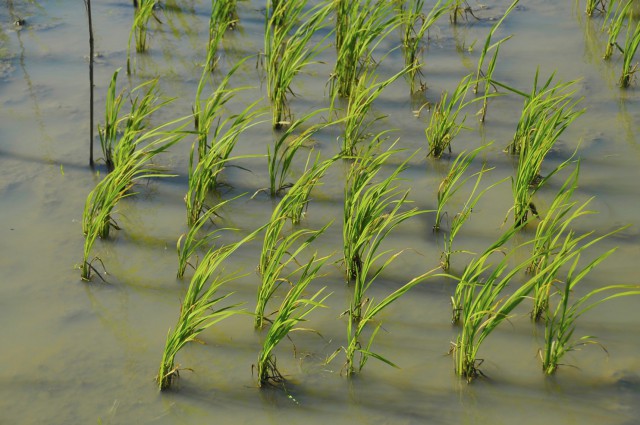Photo credit: Jonathan S. Concepcion
PhilRice has recently developed a new breeding line, which shows high submergence tolerance.
In the Development of NSIC Rc160-Sub1: Progress on marker-assisted breeding study, PhilRice researchers reported 90 to 95% survival of advanced breeding materials under submerged conditions. The same trial in 2012 reported only 58% survival.
The research team employed different levels of submergence in two stages of the rice crop. At the seedling stage, 10-14 days after planting, under screenhouse condition, seedlings were flooded for 10-14 days at 1-m water level. In a field trial during the vegetative stage or 21 DAT, samples were flooded at 1-m water level for 5 days. High submergence tolerance was observed in both screenings.
The research team used IR64-Sub1 as the donor of submergence tolerance trait.
“We chose NSIC Rc160, a PhilRice-bred variety, to be the parent as it has good eating quality, is high yielding, and confers intermediate reaction to blast and bacterial leaf blight,” says Teodora Mananghaya, study team member.
NSIC Rc160-Sub1 is being developed using combined conventional breeding and intensive marker assisted selection.
Mananghaya explains that the marker-assisted breeding technique hastens trait identification and gives precise and immediate results.
As of this writing, NSIC Rc160-Sub1 line is under field trials at the National Cooperative Testing (NCT), a step closer before it becomes a full-fledged rice variety.





